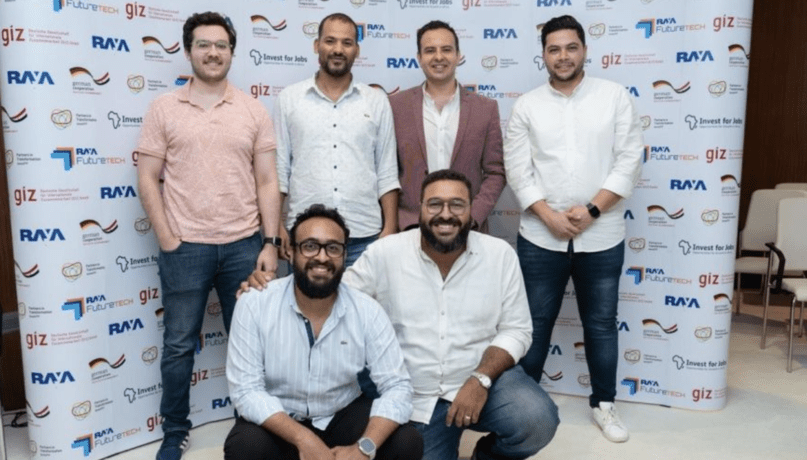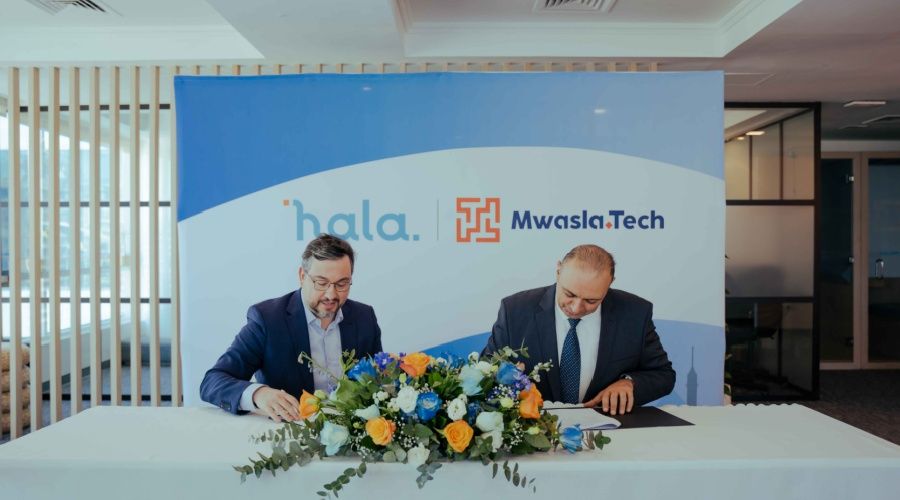CAIRO: From accelerator program graduations and fintech funding boosts to market entries and technology partnerships, the startup landscape in the Middle East and North Africa region is witnessing dynamic developments.
Impactful investments, strategic expansions, and collaborative initiatives are helping various sectors experience significant growth and innovation.
Egypt’s Raya FutureTECH completes first accelerator program

Some of the graduates of the accelerator program. Supplied
Egypt’s Raya FutureTECH, the innovation arm of Raya Holding, has successfully concluded its inaugural accelerator program in collaboration with GIZ.
The Demo Day, held in Cairo, marked the graduation of the first cohort of 13 startups, including Arzaq Masr, Cultivaet, and Accounting Club, as well as Meta Egypt, BUS14, and Credify.
Jadeed, Wfrley, and PlanQ also completed the program, as did Tatbeek, the Holiday Homes Service Co., H.E Rental, and WhereApp.
The winners will receive additional support and funding to further develop their solutions.
Clara Samman, senior program officer at Raya FutureTECH, shared insights on the program’s objectives and achievements.
“This program was designed to provide the founders with the resources, training, and mentorship they need to grow. Through one-on-one consultations with experts from Raya, workshops, and connections to our network, we’ve equipped them with the tools for success,” she said.
UAE’s Maalexi secures $1 million venture debt from Stride Ventures
UAE-based Maalexi, an agriculture-focused fintech, has raised $1 million in venture debt from Stride Ventures, according to a report by Abu Dhabi SME Hub.
Founded in 2021 by Azam Pasha and Rohit Majhi, Maalexi facilitates direct cross-border trade access for small food and agri-businesses through its dynamic risk management platform.
This investment aims to accelerate Maalexi’s growth plans and enhance its operational capabilities for more efficient procurement and distribution of food and agri-produce across the region.
Pasha, the firm’s CEO, emphasized the impact of this funding on the company’s expansion.
“This debt capital raise from Stride Ventures will significantly enhance our ability to acquire new users and scale our operations, further solidifying our position as a leading digital risk management platform for small and medium enterprises engaged in cross-border trade,” he said.
The executive added that the funds would be used to deploy “cutting-edge technology solutions” that streamline the movement of goods across the firm’s local and international warehouses and carriers.
Jordan’s ISSF invests $5 million in Global Ventures’ Fund III
The Innovative Startups and SMEs Fund in Jordan has invested $5 million in Global Ventures’ Fund III.
Founded in 2018 by Noor Sweid, Global Ventures is a series-A focused, emerging-market VC firm with $300 million in assets under management, investing in mission-driven founders across the MENA region.
The ISSF, established in 2017 by the World Bank and the Central Bank of Jordan, supports Jordanian startups through direct investments and venture capital fund investments.
Mohammed Al-Muhtaseb, ISSF CEO, expressed optimism about the collaboration, describing it as aligning with the company’s “vision” for Jordanian ecosystem that includes capitalizing on local talent.
“We are happy to welcome Global Ventures Fund III to our portfolio of funds. They have demonstrated deep belief in the Jordanian ecosystem, having invested in several Jordanian companies from previous funds,” he added.
UAE’s Hala expands into Egyptian market with MwaslaTech partnership

Khaled Nuseibeh, CEO at Hala, and Yasser Sedky, CEO at MwaslaTech, signing the agreement. Supplied
UAE-based mobility company Hala has announced its entry into the Egyptian market through a partnership with MwaslaTech.
Hala, established in 2019 through a joint venture between Careem and Dubai’s Roads and Transport Authority, has signed a memorandum of understanding with MwaslaTech, a provider of smart transport and shared mobility solutions.
Hala aims to introduce an e-hailing taxi solution and leverage advanced technologies to enhance the travel experience in Egypt, particularly in new cities such as the New Administrative Capital.
Khaled Nuseibeh, CEO at Hala, highlighted the strategic significance of this expansion.
“This is a proud moment for all of us at Hala as we pursue new and exciting opportunities beyond the UAE for the first time and commence our ambitious expansion into the MENAT region,” Nuseibeh stated.
“We are pleased to partner with a trusted industry leader, MwaslaTech, for this pivotal next step in our growth journey. Our experience and reputation for reliability in the UAE will enable us to deliver first-rate transportation solutions in Egypt,” he added.
Qatar’s Startup Grind partners with Builder.ai to support local startups
Qatar-based startup community Startup Grind Qatar has partnered with the UK’s Builder.ai, an AI-powered composable software platform, to digitally empower local businesses and entrepreneurs.
Through this collaboration, Qatar-based startups will gain access to Builder.ai’s platform and expertise, enabling them to streamline their development processes, accelerate time-to-market, and efficiently scale their businesses.
Varghese Cherian, chief revenue officer of Builder.ai, expressed enthusiasm about the partnership.
“We are excited to join forces with Startup Grind Qatar to empower local startups with the tools and resources they need to succeed in today's competitive market,” Cherian said.
“At Builder.ai, we are committed to supporting entrepreneurship and fostering innovation, and this partnership exemplifies our dedication to driving digital transformation and growth within the Qatar startup community,” he added.
MENA VC landscape sees 33% increase in investors: MAGNiTT
Investor numbers in the Middle East and North Africa’s venture capital ecosystem saw an annual increase of 33 percent in the first half of 2024, new data revealed.
According to a report from venture data platform MAGNiTT, rising sentiment spurred a 130 percent increase in the number of funds launched in the MENA region during this period.
Data revealed that despite the increase in investors, only $768 million in funding was poured into regional startups, a drop of 34 percent year on year.
The total number of deals reached 211, an 18 percent decline in the first half of the year, while exits plummeted by 63 percent to just 10.
E-commerce was the most funded sector with $244 million in funding, while fintech was the industry of choice in terms of deal count.
The Public Investment Fund’s Sanabil Investments was the most active investor in the region with $57 million in capital deployed.
Saudi startups garnered the most funding in the first half with $412 million, followed by the UAE with $225 million, and Egypt with $86 million. However, all these markets saw a drop of 7, 19, and 75 percent, respectively.
Morocco and Kuwait joined the top five list with $17 million and $14 million, respectively.
In terms of deal count, the UAE topped the list with 83 transactions, an 11 percent annual increase. Saudi Arabia followed with 63 deals, a 3 percent drop, Egypt with 28, a 15 percent decrease, and Morocco and Bahrain with 10 and 7, respectively.
























